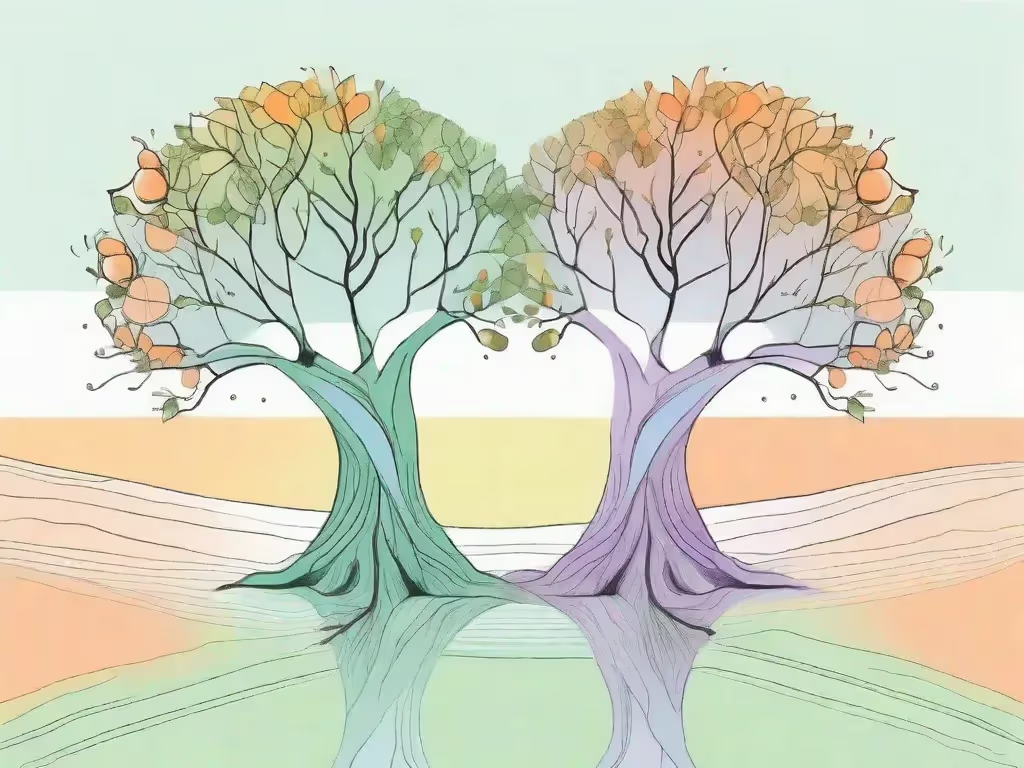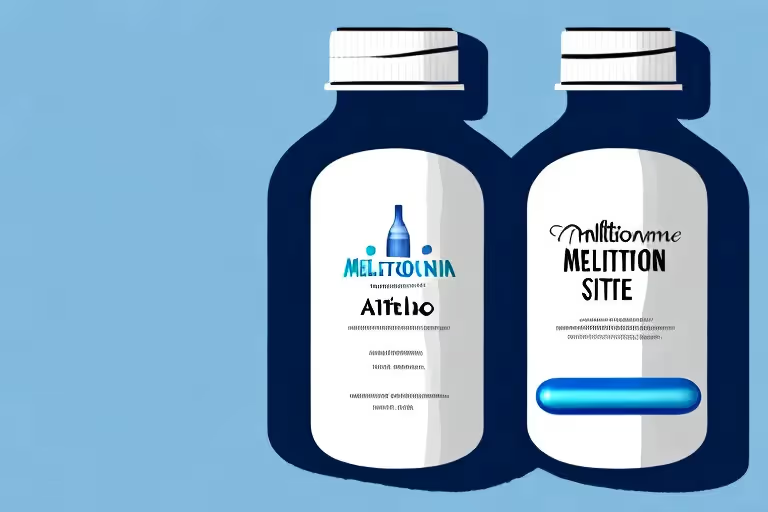In a world full of hustle and bustle, it's easy to overlook the simple moments of joy that surround us. We often find ourselves caught up in the pursuit of greater achievements and grand experiences, forgetting that true happiness can be found in the small, everyday moments. Understanding the concept of joy is the first step towards unlocking its power in our lives.
Understanding the Concept of Joy
When we think of joy, we often associate it with feelings of happiness and delight. But what does joy really mean? Joy is not just a fleeting emotion; it is a deeper sense of contentment and fulfillment that comes from within. It is the ability to appreciate and be grateful for the present moment, regardless of external circumstances.
But how do we cultivate joy in our lives? It starts with understanding the true essence of joy and its impact on our overall well-being. Joy encompasses a range of positive emotions, including happiness, excitement, and gratitude. It is a state of mind that allows us to find beauty and pleasure in even the simplest of things.
Imagine waking up to the sound of birds chirping in the morning, feeling the warmth of the sun on your face, and savoring a hot cup of coffee. These seemingly mundane moments can be filled with joy if we take the time to appreciate them. Joy is about finding meaning and purpose in the everyday experiences that make up our lives.
Aura has the world’s largest and best collection of Meditations and hundreds of Coaches to choose from.
Try it Free!
Defining Joy
So how do we define joy? Joy is not just an emotion; it is a way of being. It is the ability to find happiness and contentment in the present moment, regardless of what is happening around us. Joy is not dependent on external circumstances or material possessions; it is an internal state of mind that can be cultivated through practice and mindfulness.
When we experience joy, we feel a sense of lightness and freedom. Our worries and anxieties fade away, and we are fully present in the here and now. Joy is not about denying or suppressing negative emotions; it is about embracing them and finding a sense of peace and acceptance amidst the challenges of life.
The Psychology of Joy
Research has shown that joy has a profound impact on our mental and emotional well-being. It helps to reduce stress, anxiety, and depression, while boosting our overall sense of happiness and life satisfaction. Joy is a powerful tool in our journey towards better mental health.
But how does joy work? From a psychological perspective, joy is closely linked to positive psychology and the science of happiness. When we experience joy, our brains release neurotransmitters such as dopamine and serotonin, which are responsible for feelings of pleasure and well-being.
Furthermore, cultivating joy can have a ripple effect on our relationships and the world around us. When we are joyful, we radiate positive energy and attract others who are drawn to our happiness. Joy is contagious, and by sharing our joy with others, we can create a ripple effect of positivity and happiness in our communities.
In conclusion, joy is not just a fleeting emotion; it is a state of mind that can be cultivated through practice and mindfulness. It is about finding beauty and pleasure in even the simplest of things and appreciating the present moment. By understanding the concept of joy and its impact on our mental and emotional well-being, we can strive to live more joyful and fulfilling lives.
The Importance of Everyday Joy
While joy may seem like a small and insignificant part of life, it plays a crucial role in our overall well-being. Cultivating joy in our daily lives can have a profound impact on our mental and emotional health, as well as our relationships with others.
Imagine waking up every morning with a sense of excitement and anticipation for the day ahead. This is the power of joy. It has the ability to transform even the most mundane tasks into moments of delight. Whether it's savoring a cup of coffee, taking a walk in nature, or simply spending time with loved ones, finding joy in the everyday moments can bring a sense of fulfillment and contentment.
Mental Health Benefits of Joy
Recent studies have shown that experiencing joy on a regular basis can have a positive impact on our mental health. Joy helps to reduce stress levels, boost our mood, and increase feelings of happiness and life satisfaction. It also promotes a greater sense of resilience and helps us to cope with life's challenges.
When we experience joy, our brain releases chemicals such as dopamine and serotonin, which are often referred to as the "feel-good" hormones. These chemicals not only enhance our mood but also improve our cognitive function, memory, and overall mental well-being. Joy acts as a natural antidepressant, lifting our spirits and providing a sense of hope and optimism.
Impact of Joy on Relationships
Joy is not only important for our own well-being, but it also has a ripple effect on our relationships with others. When we experience joy, we are more open, loving, and compassionate towards those around us. Joy helps to create a positive and nurturing environment in which relationships can thrive.
Think about the last time you were in the presence of someone who radiated joy. Their infectious laughter and genuine happiness had a way of lifting your own spirits. Joy has the power to connect us with others on a deeper level, fostering a sense of belonging and strengthening our social bonds. It allows us to be fully present in our interactions, creating meaningful connections and fostering a sense of unity.
Furthermore, when we experience joy in our relationships, it helps to build trust and intimacy. It allows us to let go of past hurts and resentments, and instead focus on the positive aspects of our connections. Joy acts as a lubricant, smoothing out the rough edges and bringing a sense of harmony and peace.
In conclusion, while joy may seem like a small and insignificant part of life, its importance cannot be overstated. Cultivating joy in our daily lives not only benefits our mental and emotional well-being but also enhances our relationships with others. So, let us embrace the power of everyday joy and let it guide us towards a more fulfilling and meaningful life.
Identifying Joy in Daily Life
Joy can be found in the smallest moments of our everyday lives. It's often hiding in plain sight, waiting for us to take notice. By learning to recognize and appreciate these moments, we can cultivate a greater sense of joy and gratitude.
Recognizing Small Moments of Happiness
Take a moment to reflect on your day and identify the small moments that brought you happiness. It could be as simple as enjoying a delicious meal or sharing a laugh with a loved one. By acknowledging these moments, you are actively inviting more joy into your life.
Joy in Routine and Mundane Tasks
Even the most mundane tasks can hold moments of joy if we approach them with the right mindset. Whether it's folding laundry, washing the dishes, or taking a walk in nature, find joy in the process and appreciate the small details that bring pleasure.
Cultivating a Joyful Mindset
Cultivating joy is a practice that requires intention and mindfulness. By adopting a joyful mindset, we can shift our focus towards the positive aspects of life and experience greater inner peace and contentment.
Mindfulness and Joy
Mindfulness is a powerful tool in cultivating joy. By being fully present in the moment, we can appreciate the beauty and wonder that surrounds us. Practicing mindfulness allows us to let go of worries and anxieties, and instead, embrace the joy that is available to us right now.
Positive Affirmations for Joy
Positive affirmations are a great way to train our minds to focus on joy. By repeating positive statements such as "I am grateful for the small joys in life" or "I choose to find joy in every moment," we can rewire our brain to seek out joy and cultivate a more positive outlook.
Overcoming Obstacles to Joy
While joy is a natural state of being, there are often obstacles that can prevent us from experiencing it fully. By addressing these obstacles and making positive changes, we can break free from joy-stealing habits and live a more joy-filled life.
Dealing with Negative Emotions
Negative emotions such as stress, anger, and sadness can hinder our ability to experience joy. By learning healthy coping mechanisms and finding ways to manage negative emotions, we can create space for joy to enter our lives.
Breaking Free from Joy-Stealing Habits
There are certain habits and behaviors that can rob us of joy. Whether it's comparing ourselves to others, dwelling on past mistakes, or constantly seeking external validation, these joy-stealing habits prevent us from fully embracing the present moment. By letting go of these habits and embracing self-acceptance, we can reclaim our joy.
In conclusion, discovering joy in everyday moments is a powerful and transformative practice. By understanding the concept of joy, recognizing its importance, and actively cultivating a joyful mindset, we can unlock the immense benefits it brings to our mental and emotional well-being. So, take a moment to pause, reflect, and find joy in the small moments that make life truly worthwhile.
Interested in cultivating more joy in your life? Download the Aura Health app and discover a variety of mindfulness and gratitude exercises designed to help you find joy in everyday moments. Try it today and start your journey towards a more joyful and fulfilling life.
Aura is Your All In One App for Meditation, Mindfulness Wellbeing
Find peace every day with one app for your whole well-being. There is no one-size-fits-all solution to mental well-being. Aura is the first all-in-one wellness app that learns how to best help you. Discover an endless library of expert-created tracks for your well-being, all taught by the world’s best coaches, therapists, and storytellers. With Aura's personalized recommendations, you can find peace every morning, day and night.



.webp)






.avif)

%20(1).avif)


.avif)
.avif)
.webp)


.avif)


















































































































.avif)

















.svg)









